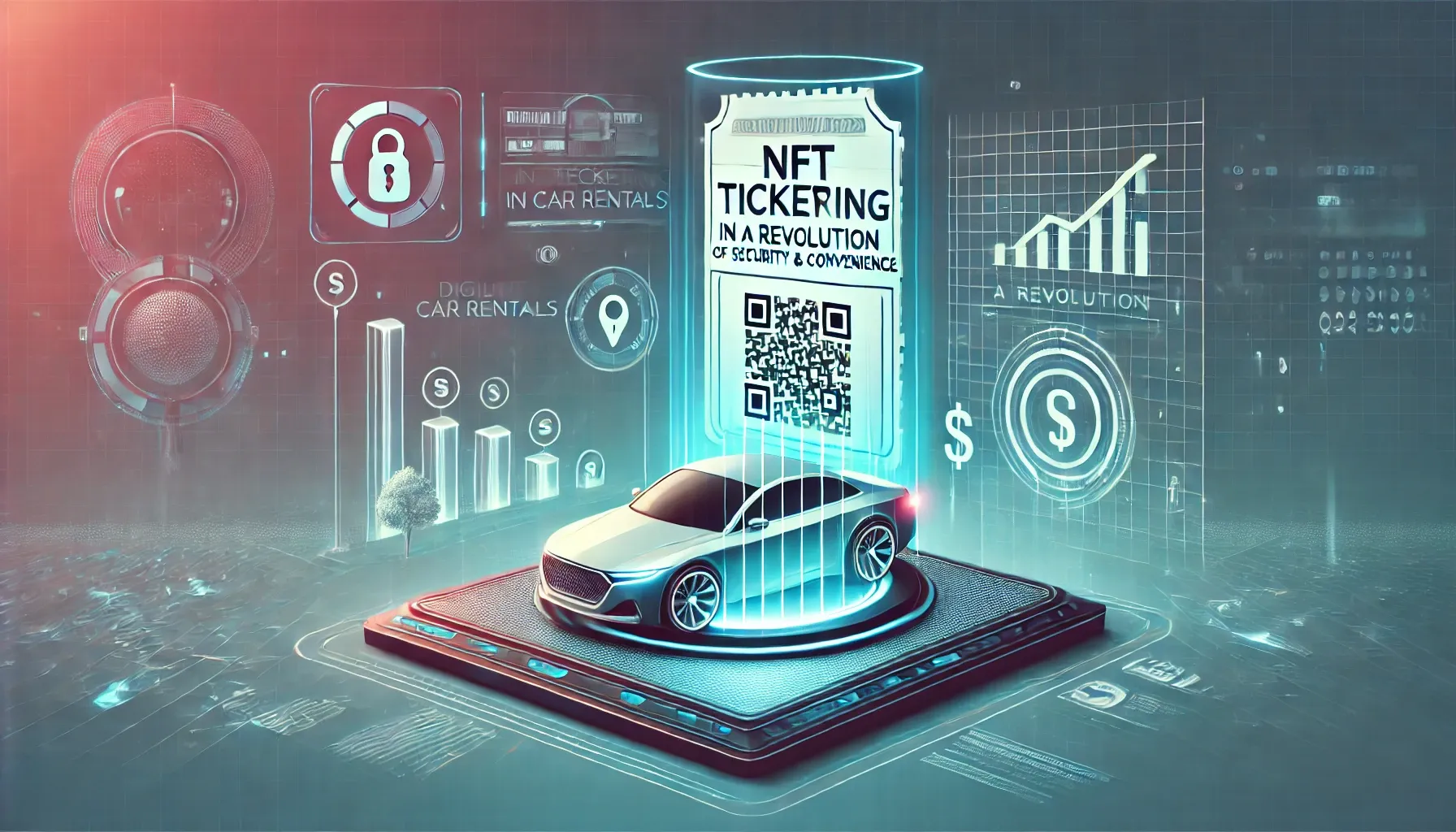
NFT Ticketing's Potential for Rental Cars
Consider a future in which renting a car only requires a phone scan. Over 45 million Americans rent cars each year, bringing in an incredible $28 billion. This makes the car rental business a huge market ready for change. In addition to business travelers, tourists also contribute to this demand by using rental cars extensively to visit places that are frequently inaccessible by public transit. In actuality, renting a car is often the only practical way to get to major tourist destinations, particularly in rural or isolated areas. There is a critical need for more effective, safe, and user-friendly solutions as the vehicle rental industry expands, especially with the growing number of tourists. NFT ticketing is a promising technology that has the potential to completely transform how people rent and manage cars.
Improved security and prevention of fraud
Let's start by discussing one of NFT ticketing's most important advantages: security, in order to comprehend its effects. Due to the prevalence of identity theft and fake documents, traditional rental agreements are vulnerable to fraud. However, because NFT tickets are distinct, unchangeable, and stored on a blockchain, they are nearly impossible to falsify.
Key Security Advantages:
- offers unchangeable ownership records.
- permits rental agreements that cannot be altered.
- makes sure the transaction history is clear.
- enables verification in real time.
- guarantees the verification of identity.
For example, NFT ticketing can be improved even more by combining it with facial recognition technology. Car rental businesses can guarantee that only the authorized person can access the vehicle by connecting an NFT ticket to a renter's facial information, greatly lowering the possibility of unauthorized use.
Simplified procedures for renting
By eliminating the need for paper records and on-site personnel, NFT ticketing transforms the rental process in addition to security. This reduces human error while simultaneously expediting transactions. Suppose a customer books a car online, gets an NFT ticket, and, when they arrive, just scans their face to unlock the car—all without having to go to a rental office.
The NFT Rental Process's Steps
- Online reservation with NFT issuance.
- Facial recognition for identity verification.
- Access to the car that is token-gated.
- Rental status updates in real time.
- Automatic billing and return.
Consider a pilot project in which a large vehicle rental company combines token-gated locking systems with NFT ticketing. Customers could potentially cut down on transaction times and problems like misplaced keys and vehicle abuse by using a smartphone app connected to their NFT ticket to unlock their rental cars in this scenario. Additionally, the first company to use this technology could draw in more customers by expediting the rental process and cutting down on the time spent creating rental documents. They could differentiate themselves from rivals and grow their market share with quicker service and more convenience.
Financial advantages for companies
NFT ticketing offers more benefits than just operational efficiency. Additionally, it provides car rental companies with significant financial advantages. Blockchain transactions' traceability and transparency lower administrative costs by lowering the possibility of disputes and chargebacks. Additionally, dynamic pricing models that modify rental rates in response to availability, demand, and customer loyalty can be programmed into NFT tickets.
Economic Benefits:
- lowers the burden of administration.
- cut costs associated with fraud.
- permits opportunities for dynamic pricing.
- enhances client loyalty.
- generates new sources of income.
To encourage clients to rent more frequently, a rental company might, for instance, offer NFT tickets with reward points already included. Customers would receive real benefits and brand loyalty if these points were exchanged for discounts or upgrades.
Insights and possibilities for the future
The incorporation of NFT ticketing is moving beyond mere theory as the vehicle rental sector develops further. A number of progressive businesses have already started experimenting with this technology to find ways to improve customer satisfaction and expedite processes.
The idea of fractional car rentals is one noteworthy realization. Customers could rent cars under this model by the hour or even the mile, and the rental conditions would be included in the NFT ticket. Urban consumers who only require a car for quick trips would find this flexibility appealing as it provides an affordable and practical substitute for conventional rentals.
The secondary market for NFT rental tickets is an additional possible use. The NFT ticket may be sold or transferred to another person if the customer is unable to use their rental, generating additional income for both the customer and the rental company, which may receive a small commission.
In conclusion
With its increased security, expedited procedures, and financial advantages, NFT ticketing has the potential to revolutionize the vehicle rental sector. Car rental companies can create a seamless and secure rental experience that satisfies the needs of contemporary consumers by combining NFT technology with token-gated access and facial recognition systems. Early adopters in the automobile rental sector will not only follow but also create trends as these technologies advance, raising customer satisfaction and profit margins to unprecedented levels.